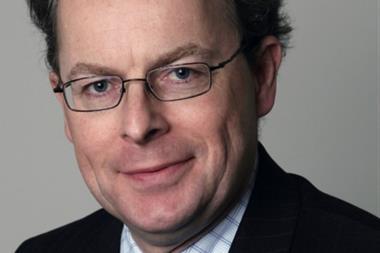On 20 July the inaugural Oxford Sustainable Finance Summit (OSFS) kicked off, welcoming 300 participants from across the world and 40 speakers representing financial entities from the biggest pension funds to financial regulators.
The event was organised by the Oxford Sustainable Finance Group (OSFG), a multidisciplinary initiative based in the Smith School of Enterprise and the Environment and working across asset classes, finance professions, and with different parts of the financial system around the world.
Hosted by OSFG director Ben Caldecott, the summit was intended to examine the latest developments in sustainable finance and investment, with a wide range of sessions, from risk pricing to biodiversity and nature.
Participants connected with the pensions industry included PGGM, BlackRock, Storebrand, Macquarie and WTW, along with banks, universities and think tanks.
The timing was apt; the previous two days had seen record UK temperatures, breaking the 40°C mark, while the Meteorological Office issued its first-ever red warning for exceptional heat.
In the Victorian splendour of the Examination Schools – where students still sit their exams – speakers spoke candidly, while participants asked searching questions and relished the opportunities for in-person networking, after the remotenesss of online video conferencing.
The opening panel, reviewing the question of “Where are we now?”, included Desiree Fixler, chair of VentureESG, the investment initiative for the venture capital industry.
Last year, Fixler was fired from her post as group sustainability officer at DWS Group, after raising concerns that the company was misrepresenting its ESG capabilities – in other words, greenwashing.
“In ESG we need to substantiate our statements, and our products and services,” she told attendees. “If you pledge it, you have to back it up with data and evidence. You can’t pledge net zero, then finance new fossil fuel projects. So we need to be as rigorous on our non-financial disclosure, as we are on our financial disclosure.”
Franziska Jahn-Madell, director of global stewardship at MFS, said ESG has become much more mainstream, and it is now acceptable to talk to company CEOs about ESG issues.
She said: “They want to know what our pressing questions are” and added that one director told MFS those questions were “our canary in the coalmine, showing us where to go now”.
“Leading limited and general partners have woken up and are smelling the coffee”
Robert Eccles, visiting professor of management practice, Saïd Business School, University of Oxford
“Regulators are coalescing around this, encouraging a greater level of accountability,” Jahn-Madell continued. “Data availability is much improved. And increased frameworks from Climate Action 100+, and the Transition Plan Taskforce are making it much quicker for us to ask the right questions.”
Robert Eccles, visiting professor of management practice, Saïd Business School, University of Oxford, said he saw private equity as the engine of transformation for ESG.
“Leading limited and general partners have woken up and are smelling the coffee,” he said. “There is a tremendous opportunity there, with $7trn-worth of assets. They control the asset, they hold it for the fairly long term, they put the board together and appoint the CEO.”
The summit will return annually, with plans for the next three events under way. Next year’s summit takes place in Oxford on 19 and 20 July 2023.
Transition plans matter
One issue tackled by the session on net-zero transition plans was whether transition plans matter, or whether they can be an opportunity for greenwashing.
The answer is yes to both, said Catherine McKenna, chair of the UN High-Level Expert Group on the Net-Zero Emissions Commitments of Non-State Entities.
“We all should be worried about greenwashing,” she said, adding that 91% of global GDP is covered by net-zero commitments, and one-third of the world’s largest publicly-traded companies have net-zero targets. “But emissions have never been higher, and we are not seeing changes in behaviour.”
One problem she emphasised was that only half the companies with net-zero targets have interim targets – there is no realistic way to transition overnight: “Science says we need to reach peak emissions by 2025, and reduce them by 45% by 2030. Meanwhile, we have 2050 targets with no way to get there.”
Furthermore, McKenna said, there is probably not enough land on earth right now for the current offset commitments of companies.
“There is low integrity,” she said, adding that there are fossil fuel companies which continue to pollute and are buying very cheap offsets which are having huge impacts on indigenous peoples in different countries.
“But there are ways of solving it. We need trillions to go into sustainable infrastructure and renewable energy, but the money is going to fossil fuel infrastructure. We can deal with that in the most boring accounting way, and limit warming to 1.5°C. But we need your help.”
Kate Levick, co-head, secretariat, (UK) Transition Plan Taskforce, said it was impressive how much support transition plans had received from the private sector, companies and investors, and she believed it is that support that has driven rapid political and regulatory momentum, as governments can see this is something the market wants to do.
The taskforce’s key initial output will be a sector-neutral framework for what a best practice gold standard transition looks like, and it hopes to publish the zero draft later this year. Work on sectoral applications should be published next year.
“Planning for transition is increasingly understood to be needed at all levels, that’s a big shift,” Levick said.
Vanessa Havard-Williams, partner and global head of environment and climate change at Linklaters, said the EU is showing an ability to embed transition plan concepts across a wider range of regulatory instruments.
Generally, there is now “a slew of guidance”, she said: “All these transition plans will cause corporates and financial institutions to coalesce around the core building blocks, in a way they couldn’t in the past 18 months, because there wasn’t a precedent,” she said.
But she also highlighted disclosure risk.
“Scopes 1 and 2 should be OK, but Scope 3 is a work in progress; the data will be rubbish initially and we have to find a way of navigating proper disclosure in relation to that,” she cautioned.
“Proper disclosure, as to how do you achieve your short-term targets and work to long-term targets, by reference to the fact you’re having to change behaviour on the demand side and through your supply chain? That’s not under your control as a reporting entity.”
She continued: “So there needs to be consideration around how we manage that, and how reporters articulate the complexities so they are less exposed to litigation where they’ve used all their good efforts.”
Panel members saw the climate change crisis as an opportunity for companies to innovate and disrupt.
The advice was: if you know you’re going to innovate, plan for it, to give yourselves competitive advantage and raise capital. Another view was that companies aren’t rewarded for innovative solutions, because it’s free to pollute, so we need a positive ambition loop, and companies should lobby for policies that are good. If we were rational, we would reward the innovators.
Standardisation and legislation
The session on standardisation and legislation in sustainability-related reporting provided a lively exchange of information and views on the scope of information that matters in different jurisdictions, primarily the EU, UK and US.
This is not only of concern for investors with global portfolios; many companies have value chains all over the world, which means they too must collect data from different countries.
The issue of international consistency in climate change standards was paramount throughout the summit – panellists talked of an ‘alphabet soup’ of standards issued by different boards, and identified by a variety of acronyms.
Sacha Sadan, director of ESG at the UK’s Financial Conduct Authority, said: “The user of accounts needs one set of accounts to compare companies, so we can reduce the cost of capital for the one with a good transition plan, and raise it for the one with a poor transition plan. But don’t let perfection get in the way of doing something – if we all want to come out with our own gold standards, we’ll still be here in 10 years’ time. And we can’t wait.”
He said the UK works closely with the EU, and SEC in the US, and had been the first country to mandate ESG for asset managers and corporates, and that the FCA was now going to regulate ESG ratings: “Ratings are starting to allocate capital aggressively.”
Patrick de Cambourg, board member, European Financial Reporting Advisory Group (EFRAG), said the group has established lines of communication with all other key initiatives.
“There is a full consciousness of the need to converge and be compatible,” he said. “But one difficulty is that the speed is different.”
He added that EFRAG is introducing in its standards between 50 and 80 indicators which financial market participants need to fulfil their own obligations.
Kristina Wyatt, deputy general counsel, Persefoni, the carbon accounting platform provider, emphasised the need for accurate data in allowing investors to measure the carbon footprint of their portfolios.
Wyatt was formerly senior counsel for climate and ESG to the director of the division of corporation finance at the US Securities and Exchange Commission.
She told participants: “I went to a software firm because doing carbon accounting on spreadsheets is really hard, there are millions of data points that have to be used properly to create emissions disclosures that are reliable and can be traced back to source,” she said.
“We need to apply software to get a unified view of what those emissions are throughout the value chain, and then we’ll see capital flow in the right direction towards companies that are taking these risks and opportunities and impacts seriously, and making a difference.”
The chair of the session, Clara Barby, senior partner at Just Climate – the climate-led investment business – observed: “Taxation – ultimately, pricing externalities – is a way to make this conversation evaporate. But we won’t get to pricing externalities unless we have disclosure. Be patient – people are coordinating this from a jurisdictional perspective, to get to measures that are consistent.”
More information
Videos of the OSFS sessions can be accessed here.
Related consultations currently open include:
- UN Secretary-General’s Expert Group on Net-Zero Emissions Commitments of Non-State Entities: Public consultation centres around four areas: standards for setting net zero targets; credibility criteria for interim targets; verification and transparency; roadmap for national and international regulations. Closes 31 August 2022.
- US Securities and Exchange Commission (SEC) proposed changes to ESG Disclosures for Investment Advisers and Investment Companies: The SEC proposed amendments to rules and reporting forms to promote consistent, comparable, and reliable information for investors concerning funds’ and advisers’ incorporation of ESG factors. Closes 16 August 2022.










